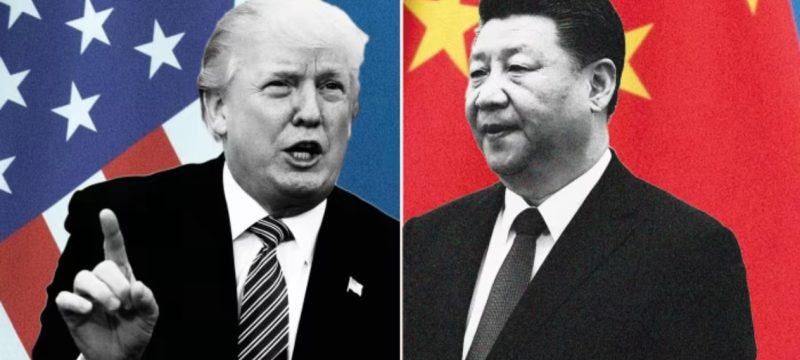China has swiftly responded to the latest U.S. tariffs imposed by President Donald Trump, igniting tensions in the already fraught trade relationship between the world’s two largest economies. On Tuesday, Beijing’s Finance Ministry announced new tariffs, including a 15% levy on U.S. liquefied natural gas (LNG) and coal, and a 10% tariff on crude oil, farm equipment, and certain automobiles. These tariffs are set to take effect on February 10.
This move followed just hours after the U.S. slapped a 10% duty on all Chinese imports, a decision Trump defended by accusing China of failing to curb the flow of illicit drugs into the United States. The back-and-forth has reignited concerns of a prolonged trade war that could further impact global markets.
Also Read: Trump Slaps Tariffs on Canada, Mexico, and China
In addition to the tariffs, China has taken several aggressive steps, including launching an anti-monopoly investigation into Alphabet Inc.’s Google and placing U.S. companies such as PVH Corp and Illumina on its “unreliable entities list.” The Chinese government also imposed export controls on rare earth metals, which are essential for the technology and energy sectors worldwide.
Global Markets React to Rising Trade Tensions
The escalation in the trade war has rattled financial markets. Hong Kong stocks reversed earlier gains, and the Chinese yuan weakened against the U.S. dollar, pulling down the Australian dollar as well. Oxford Economics downgraded China’s economic growth forecast, warning that the potential for further tariffs remains high.
Gary Ng, senior economist at Natixis in Hong Kong, highlighted the difficulties in reaching a deal between the U.S. and China. “Unlike Canada and Mexico, it is clearly harder for the U.S. and China to agree on what Trump demands economically and politically,” Ng commented.
Temporary Reprieve for Canada and Mexico
While China bears the brunt of the latest trade restrictions, Mexico and Canada have secured temporary relief. President Trump agreed to delay 25% tariffs on these two countries for 30 days after reaching agreements on border security and crime enforcement. Canada has pledged to enhance surveillance and personnel to combat organized crime, while Mexico committed 10,000 National Guard troops to bolster its northern border.
Trump took to social media to justify the agreements, stating, “As President, it is my responsibility to ensure the safety of ALL Americans, and I am doing just that.” Despite the temporary relief for North American allies, Trump hinted at potential trade measures against the European Union, signaling that the bloc could be the next target in his trade agenda.





